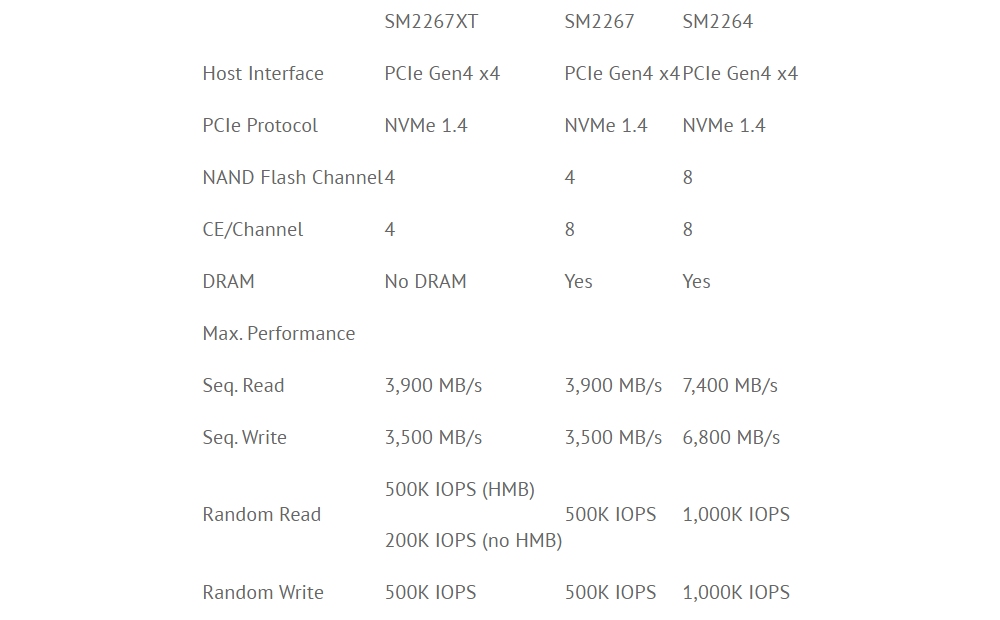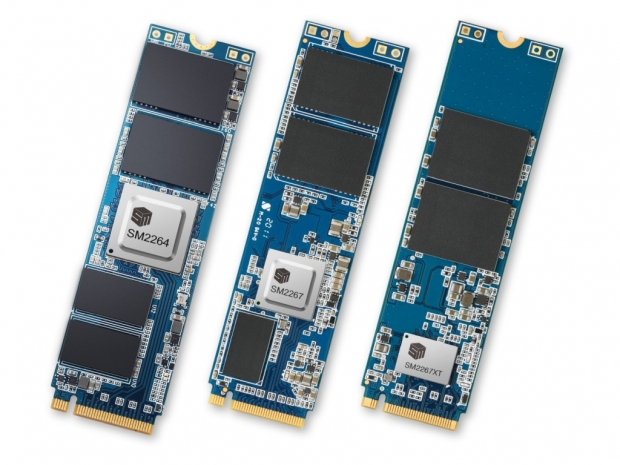Silicon Motion said its new lineup includes three new PCIe 4.0 interface SSD controllers with NVMe 1.4 protocol, the SM2267XT, SM2267, and SM2264. These will cover mainstream/entry-level and high-end SSD market segments.
High-end SM2264 switch to 12nm quad ARM Cortex R8
For the high-end market segment and in order to compete with the likes of Samsung, upcoming Phison's E18, or the Phison E16 controller, which was the first consumer PCIe 4.0 controller, Silicon Motion uses 12nm manufacturing process and sticks to the high-performance ARM Cortex R8 CPU cores, or four of them to be precise.
The high-end SM2264 controller will have PCIe 4.0 x4 host interface, 8-channel NAND support with 1600MT/s (8 CE/Channel), supports LPDDR4/DDR4 DRAM, and 4kB size LDPC error correction.
When it comes to performance, the SM2264 sequential performance peaks at 7,400MB/s for read and 6,800MB/s for write, with 4K random performance hitting 1000k IOPS for both read and write. This is a significant improvement compared to, for example, Phison E16, which peaks at 5,000/4,400 MB/s read and write and 750k IOPS for random 4K read and write.
Mainstream SM2267 and SM2267XT stick to 28nm and Cortex R5 CPU cores
For the mainstream market, Silicon Motion sticks to the cheaper 28nm, which is no surprise considering that these are based on dual ARM Cortex R5 CPU cores but also pack LPDDR4, DDR4-XT DRAM, or DRAM-less support for the SM2267XT, full PCIe 4.0 x4 interface with 4ch NAND support with 1200MT/s (4 or 8 CE/Channel), and 2kB size LDPC error correction.
The SM2267 and the SM2267XT are similar and should offer similar performance, with sequential performance peaking at 3,900MB/s for read and 3,500MB/s for write, putting them in line with some other mid-range to entry-level PCIe 4.0 controllers. The 4K random performance peaks at 500k IOPS for both read and write. These will go against, for example, Phison's E12 controller.
High-end SM2264 sampling to vendors, mid-range SM2267(XT) are already on the market
The high-end SM2264 controller is, according to Silicon Motion, currently sampling to vendors but there is still no word on when to expect SSDs based on this controller. Currently, Phison is working on its next-gen E18 SSD controller which should provide significant improvements over the Phison E16, including 7.4GB/s transfer speeds.
The mid-range and entry-level SM2267 and SM2267XT are currently in mass production, and some SSDs based on such controllers can already be found on the market, which is not a big surprise as these are made on a well-established 28nm manufacturing process.





